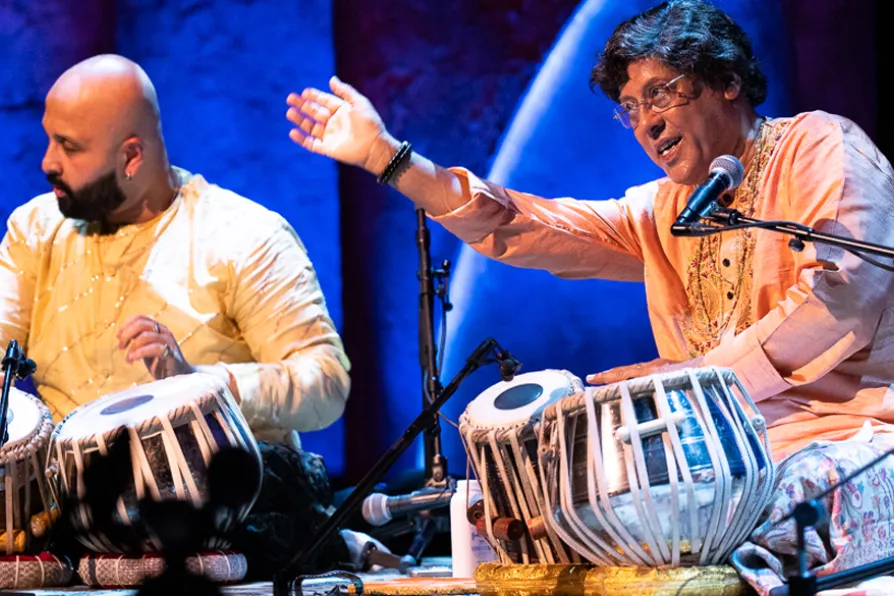ALEX HALL recommends an exhaustive investigation of the means by which the Starmer faction assassinated the left

 Pandit Anindo and Anubrata Chatterjee perform at the Barbican
[Rehmat Ryatt / Darbar Festival]
Pandit Anindo and Anubrata Chatterjee perform at the Barbican
[Rehmat Ryatt / Darbar Festival] Anindo Chatterjee and Anubrata Chatterjee
Darbar Festival, Barbican Centre, London
DARBAR festival was founded in 2005 by Sandeep Virdee as a tribute to his late father, the tabla master and teacher Gurmit Singh Virdee.
It is today probably the largest Indian classical music festival outside the subcontinent itself, and it turns out that Anindo Chatterjee had a hand in its foundation; his suggestion to Singh Virdee that he do a tabla performance in honour of the elder Virdee following his death seeded the idea of the festival in the young Sandeep’s mind.
So Chatterjee’s performance today is particularly fitting, especially as he appears with his own son, following rapidly in his footsteps as a master tabla player in his own right. Today they are joined by Dilshad Khan on the sarangi, the bowed string instrument that produces the distinctive and evocative sliding notes which underpin so much of this music.

This is a concert of ambition and courage by organist and improviser Wayne Marshall, says SIMON DUFF













